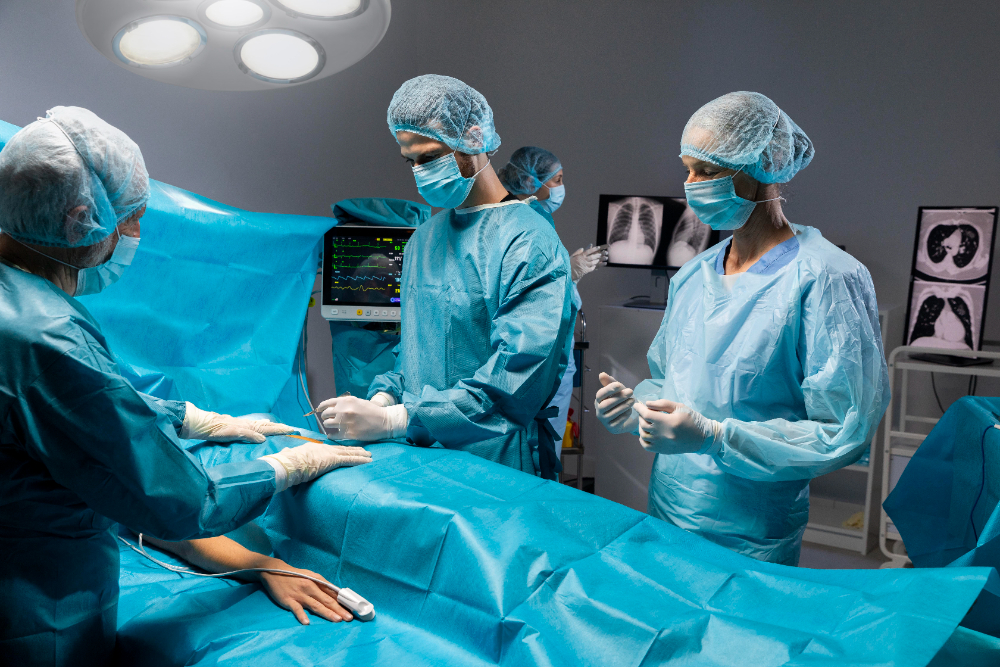All You Need to Know About General Surgery

General surgery seems to be a general term, almost ordinary. Still, it is one of the most significant medical fields. A general surgeon is an expert trained to perform surgery on almost any part of the body. Their work does not restrict itself to a single organ or system; they deal with an array of conditions, thus being very important in hospitals and clinics. Let’s dive into what general surgery is, what it involves, and why it is so important.
What Is General Surgery?
General surgery is a type of medical practice that deals with curing through surgery on people suffering from diseases and disorders in the abdomen, digestive tract, or even some chest problems. It is a form of medical practice that requires doctors to be very versatile and know much more about surgical diseases and conditions.
However, the term “general” does not imply a lack of complexity. In fact, general surgeons undergo massive practice to become masters in problem detection, deciding whether an operation is needed, and performing operations with precision.
What Do General Surgeons Do?
The work of a general surgeon is much more than just operating, and here’s a closer look at what else they do:
- Preoperative Diagnosis of the Problem: Prior to any surgery, the general surgeon assesses his or her patient through tests, scans, and consultation with experts to determine if surgical intervention is necessary.
- Surgical Procedure: General surgeons sometimes have quite a varied routine, from minor invasive procedures to complex open surgery.
- General Surgery Aftercare: After surgery, they supervise the patient’s recovery, intervene in any complications that could arise, and ensure that healing is proceeding well.
- Emergency Surgical Procedures: A general surgeon is normally among the first to attend to emergency cases concerning trauma, specifically due to accidents, internal bleeding, and ruptured appendices.
Common Conditions Treated by General Surgeons
Here are some of the most common issues general surgeons deal with:
- Appendicitis: When the appendix becomes inflamed and should be removed before it ruptures.
- Hernias: This is when an organ bulges through a weak spot in the surrounding muscle or tissue. The surgeon repairs this by closing the hole.
- Gallbladder Problems: Gallstones may cause a blockage in the bile flow, and surgery to remove the gallbladder may be required due to pain.
- Bowel Obstructions: A bowel obstruction can be due to a blockage of the intestines and cause extreme pain and require urgent surgical intervention.
- Skin Lesions and Tumors: General surgeons remove cysts, moles, and a few types of cancers growing on the skin.
Role of Technology in General Surgery
Technology has dramatically changed general surgery. Many years ago, most surgeries required large incisions, which meant more pain and longer recovery times. Nowadays, many procedures are performed using laparoscopy, a minimally invasive technique.
Laparoscopic surgery is performed through very small incisions and a camera, so surgeons can perform with much more accuracy. This technique minimizes scarring, reduces hospital stay, and enables the patient to return to their life as soon as possible.
Another innovation is the use of robot-assisted surgery. Although the surgeon remains in control of the instruments, robotic systems provide unparalleled precision and flexibility.
Preparation for Surgery
For most patients, surgery can bring anxiety. However, knowing what to expect may help soothe their worries. Here are some preparations required:
- Get Answers to Your Queries: Raise any questions with your surgeon concerning the complexities, dangers, and recuperation associated with the procedure. Communication is the most necessary part.
- Follow Instructions: If your doctor prescribes pre-surgery rules, such as fasting or stopping taking medications, please adhere to them.
- Prepare for Recovery: Arrange an at-home caregiver. You’ll probably need assistance or rest in the first few days post surgery.
Recovery After Surgery
Recovery really is dependent on the specific procedure you have had. Some minor procedures don’t typically require the patient to stay in the hospital, whereas most major surgical procedures do require that. Generally speaking, here is what you may expect:
- Pain management: Your doctor will provide you with medications to help reduce any pain or discomfort that you may feel.
- Follow-Up Visit: This visit will ensure that your healing process is on the right track.
- Lifestyle Modification: Sometimes it may require some change in diet or activities, temporarily or permanently.
Final Thoughts
General surgery is a really interesting field that involves skill, precision, and compassion. Whether it is to diagnose or undertake life-changing procedures, a general surgeon is very important in the health sector. If you ever need surgery, remember that these are professionals, fully trained to give you the best care possible. Knowing what they do, it can make the situation less intimidating and more relieving. Knowing what they do can make the situation less intimidating and more relieving.








